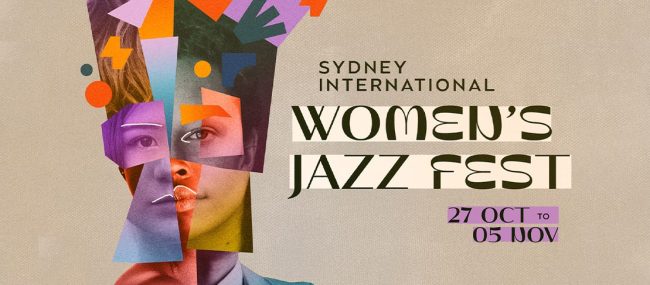Hugh Masekela’s 75th Birthday
Dial Afrika this week has a very special tribute going out to legendary South African trumpeter Hugh Masekela, for his 75th birthday.
 Hugh Ramopolo Masekela was born on April 4, 1939, in Witbank, South Africa. At age 14 he took up trumpet, given to the young Hugh by Archbishop Trevor Huddleston, the anti-apartheid chaplain at St. Peters Secondary School. After Huddleston asked the leader of the then Johannesburg “Native“ Municipal Brass Band, Uncle Sauda, to teach Hugh the rudiments of trumpet playing, the young boy quickly proceeded to master the instrument. Soon, some of Hugh’s music-loving schoolmates also became interested in playing instruments, leading to the formation of the Huddleston Jazz Band, South Africa’s very first youth orchestra. Hugh went on to play in other dance bands led by the great Zakes Nkosi, Ntemi Piliso, Elijah Nkwanyana and Kippie Moeketsi. By 1956, Hugh joined Alfred Herbert’s African Jazz Revue.
Hugh Ramopolo Masekela was born on April 4, 1939, in Witbank, South Africa. At age 14 he took up trumpet, given to the young Hugh by Archbishop Trevor Huddleston, the anti-apartheid chaplain at St. Peters Secondary School. After Huddleston asked the leader of the then Johannesburg “Native“ Municipal Brass Band, Uncle Sauda, to teach Hugh the rudiments of trumpet playing, the young boy quickly proceeded to master the instrument. Soon, some of Hugh’s music-loving schoolmates also became interested in playing instruments, leading to the formation of the Huddleston Jazz Band, South Africa’s very first youth orchestra. Hugh went on to play in other dance bands led by the great Zakes Nkosi, Ntemi Piliso, Elijah Nkwanyana and Kippie Moeketsi. By 1956, Hugh joined Alfred Herbert’s African Jazz Revue.
At the end of 1959, Dollar Brand (later known as Abdullah Ibrahim), Kippie, Jonas, Makhaya Ntshoko, Johnny Gertze and Hugh formed the Jazz Epistles, the first African jazz group to record an LP and perform to record-breaking audiences in Johannesburg and Cape Town through late 1959 to early 1960.
Following the March 21, 1960, Sharpeville Massacre Hugh finally left the country, helped by Trevor Huddleston and international friends like Yehudi Menuhin and John Dankworth, who got him admitted into London´s Guildhall School of music. Miriam Makeba, who was already enjoying major success in the United States, along with Harry Belafonte, Dizzy Gillespie and John Mehegan later helped Hugh obtain admission to the Manhattan School of Music in New York. Masekela began recording extensively with Makeba and can be heard adding his trumpet, singing and arranging talents to some of the singer’s very best records. By 1963, the trumpeter had recorded his first solo album, TRUMPET AFRICAINE, and the following year, Makeba and Masekela were wed.
The trumpeter’s breakthrough record was his engaging 1965 live performance, THE AMERICANIZATION OF OOGA BOOGA, which was produced by the late Tom Wilson, who had also produced Bob Dylan and Simon & Garfunkle’s debut successes.
Masekela and Makeba divorced in 1966 and the trumpeter soon relocated to Los Angeles. He began recording for MCA’s hip pop subsidiary, UNI Records, where he and business partner, producer Stewart Levine, released such signature Masekela performances as THE EMANCIPATION OF HUGH MASEKELA (1966), the wondrous African collection AFRICA ’68 and, of course, Masekela’s biggest hit ever, 1968’s “Grazing In The Grass” from THE PROMISE OF A FUTURE.
In 1981, Hugh moved to Botswana, where he started the Botswana International School of Music with Dr. Khabi Mngoma. Several years later, Hugh had his record label, Britain’s Jive Records, help him set up a mobile studio in Gaborone, where he recorded the great TECHNO-BUSH, which launched his first dance hit, “Don’t Go Lose It Baby”. In 1985, shortly after recording WAITING FOR THE RAIN, Masekela had to leave with his band Kalahari for England after the South African Defense Force massacred his friend George Phahle and his wife Lindi Phahle along with 14 other people in the pretext of raiding “communist terrorist camps” manned by South African Anti-Apartheid activists.
While in England Hugh conceived, with playwright and songwriter Mbongeni Ngema, the mbaqaga musical SARAFINA, which found great success on Broadway in 1988. After touring with Paul Simon’s GRACELAND, Masekela finally was able to return home, following the unbanning of political parties and the release of Nelson Mandela in 1990.
Masekela continues to maintain a very active tour schedule, spreading his musical message of peace, harmony and unity throughout the world. He can also be heard adding his distinctive voice and flugelhorn to many other world artists’ recordings – from some of Bob Marley’s earliest recordings to Buena Vista Social Club bassist Cachaito Lopez’s 2001 solo record.
You can read up on his full biography HERE.
Join PJ at 9am on Wednesday, to share in the celebration.


